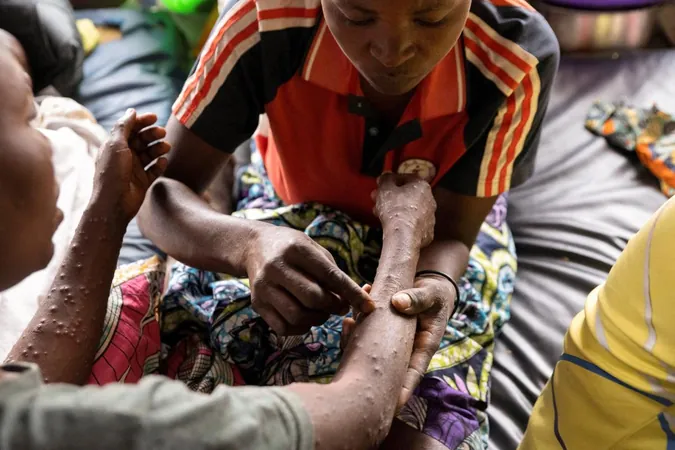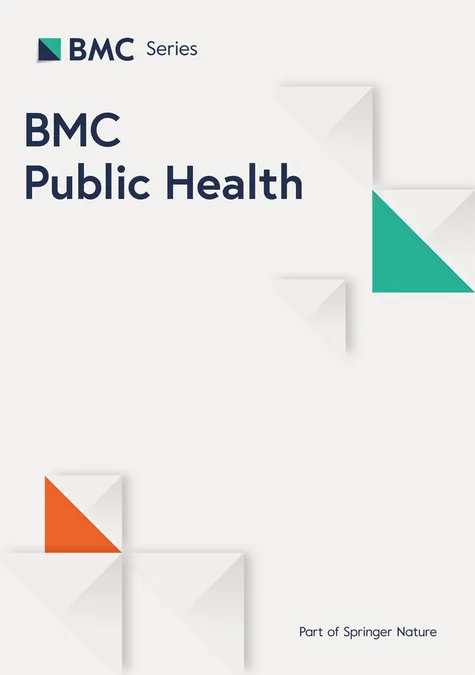
Mpox Crisis Exacerbated by Ongoing Conflict in DR Congo, Warns MSF
2024-09-30
Mpox Crisis in DRC
In the war-torn regions of the Democratic Republic of Congo (DRC), especially in the eastern provinces, vulnerable displaced populations are facing a grave new threat: mpox. Médecins Sans Frontières (Doctors Without Borders) highlighted the dire situation, where ongoing violence and instability create perfect conditions for the viral infection to spread rapidly among the affected populations.
The Dire Situation for Displaced Individuals
Displaced individuals, who have fled from their rural villages due to armed conflict, find themselves in overcrowded camps with minimal access to basic necessities. Natalia Torrent, MSF’s head of mission in North Kivu, revealed the devastating impact on these communities. "They are extremely vulnerable because they have been fleeing for months," she stated, indicating that many have lost their means of livelihood and live in emergency conditions.
Increased Vulnerability Due to Ongoing Conflict
The UN's International Organization for Migration (IOM) has noted that displaced individuals—such as migrants and refugees—are especially susceptible to mpox due to their precarious living situations. In Goma, for instance, approximately 750,000 people have been displaced by ongoing combat between the Congolese army and the M23 rebel group, exacerbating their risk of infection.
Specific Risks for Women
Women, in particular, face additional dangers. In a country plagued by sexual violence as a weapon of war, the camps present perilous circumstances. Torrent commented on the grim reality for women who must leave the safety of the camps to gather food, often at the risk of assault and exploitation. The current mpox variant, referred to as clade Ib, transmits more easily through close interactions, including sexual contact, raising alarming concerns around transactional sex for survival.
Health Risks and Global Emergencies
Mpox presents symptoms that include flu-like reactions and painful lesions but can escalate to severe illness or even death without timely treatment. The World Health Organization (WHO) recently declared a global public health emergency regarding mpox for the second time in two years, as outbreaks are being reported globally, starting from the DRC.
Recent Statistics and Warnings
As of late September, Africa had recorded nearly 30,000 suspected cases and over 800 deaths from mpox this year alone. The IOM has specifically warned about the risks facing vulnerable populations in the East, South, and Horn of Africa. This region is home to over 12.2 million international migrants, with many overlooked in the response to health crises.
Need for Vaccines and Interventions
While the DRC received its first shipment of 100,000 vaccines in early September through a donation from the European Union, experts assert that millions more are urgently needed to combat the outbreak effectively. Torrent emphasized the critical need for vaccines and public health interventions tailored to the circumstances of displaced populations who cannot adhere to basic health guidelines due to their living conditions.
Challenges in Healthcare Access
In the dire camps of Goma, isolation, proper hygiene, and healthcare become nearly impossible to achieve. Despite receiving medical guidance, individuals are often left waiting for test results, further increasing the potential for the virus to spread in their close quarters.
MSF's Ongoing Support and Advocacy
MSF remains on the ground, providing medical support, clean water, clothing, and isolation spaces for those affected by mpox, working tirelessly to mitigate the crisis. Torrent expressed hope that the ongoing mpox outbreak might draw international focus to the ongoing conflicts and humanitarian crises in the DRC, advocating for a more robust response to the needs of the Congolese people.
Conclusion and Call for Action
"The Congolese deserve to have the chance to live the life that they want to live, and so far, this is not the case," she concluded, emphasizing the importance of addressing both the health crisis and the underlying issues of violence and displacement. As the situation continues to unfold, the world watches, hoping for a swift resolution to a crisis that is as preventable as it is pressing.



 Brasil (PT)
Brasil (PT)
 Canada (EN)
Canada (EN)
 Chile (ES)
Chile (ES)
 España (ES)
España (ES)
 France (FR)
France (FR)
 Hong Kong (EN)
Hong Kong (EN)
 Italia (IT)
Italia (IT)
 日本 (JA)
日本 (JA)
 Magyarország (HU)
Magyarország (HU)
 Norge (NO)
Norge (NO)
 Polska (PL)
Polska (PL)
 Schweiz (DE)
Schweiz (DE)
 Singapore (EN)
Singapore (EN)
 Sverige (SV)
Sverige (SV)
 Suomi (FI)
Suomi (FI)
 Türkiye (TR)
Türkiye (TR)